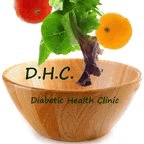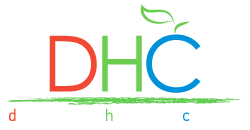 Keep up to date with what we are doing at the Diabetic Health Clinic.
Keep up to date with what we are doing at the Diabetic Health Clinic.
Updates on the latest programs.
Check out the latest recipes.
Learn about the latest research and more…..
 Diabetic Health Clinic Newsletter 12/10/2015
Diabetic Health Clinic Newsletter 12/10/2015
What does it take to be diagnosed?
Greetings,
 Over the last few months this question seems to be popping up more and more. Having a test done can be simple however understanding how the test works can actually be quite complicated. This week we are going to take all of the confusion out of the process.
Over the last few months this question seems to be popping up more and more. Having a test done can be simple however understanding how the test works can actually be quite complicated. This week we are going to take all of the confusion out of the process.
The ultimate diagnosis test for type 2 diabetes is what is called the HbA1c blood test. HbA1c stands for “Glycated Haemoglobin.” This test actually produces a 90 day average of your blood sugars. It takes into account all the highs and all of the lows over a three month period. The way that this test works is that there is a haemoglobin which binds to the red blood cells. The life of a red blood cell is around 120 days and the test is known to reflect the average blood glucose levels over the last 90 days.
HbA1c can be measured as a percentage. (This number should not be confused with the reading from your glucometer. Although they can look very similar they are actually very different. Some blood tests will show the HbA1c as a mmol/mol result. The number will look like a normal decimal number e.g. 54.) Click here to see the conversation table.
When a person has a HbA1c test done they are diagnosed based on the following results.
- 6 or less: Healthy
- 6-6.4: At high risk or pre-diabetic
- 6.5 or higher : Has diabetes
Sounds simple. Have a blood test that measures your HbA1c, get a result and you know. In Australia it has not that simple as the HbA1c test unit until recently has not been covered by the Medicare health care system. All of a sudden the whole procedure of diagnosis became much more complicated. Doctors ordered a fasting glucose test, which tests the blood glucose level at the time when the blood was taken. This reading can and does vary based on a variety of different factors. Blood sugars can vary significantly from morning to morning, A good example of one factor is stress. If someone has a highly stressful situation blood sugars can vary significantly, so to measure a snippet in time cannot be the basis for a diagnosis as it can give erroneous interpretations. To obtain a healthy results the fasting blood glucose level should be no higher than 6.1 (Not to be confused with the HbA1C as these are very different.)
The cost of a HbA1c through QML is $131.50.
From the 1st of November 2014 medicare officially recognised the HbA1c test for the purpose of diagnosis. They now re-imburse one test per year for the purpose of diagnosing and up to 4 tests per year once a person has a diagnosis. Finally the government has seen the light and it has just become easier to be diagnosed.
It also needs to be noted that although the HbA1c is a definitive test, for a formal diagnosis to occur there needs to be a fasting blood glucose test result that is associated with the HbA1c test. Your doctor will order both tests at the same time. The levels for fasting g blood glucose are defined as follows:
- 6.1 or less: Healthy
- 6.1-6.9: At high risk or pre-diabetic
- 7.0 or higher : Has diabetes
That now leads us to the next point. If you have a glucometer at home or you know someone who does you can take your own fasting glucose levels. Please keep in mind that the home glocometer is not as accurate a a blood test however it will give you a good indication. The reading should be taken just before breakfast after not eating throughout the night. If your fasting level is higher than 6.1 it is important to see your doctor. Your doctor will now be able to order a HbA1c which will show very clearly if there is a problem.
This week we added the following items to our web site:
Testimonial:
Does the Diabetic Health Clinic Lifestyle Change Program work?
Click here to see how David Edgar changed his health around.
Infographic:
Many people know that chia seeds a very beneficial but what do they really provide? Click this link to learn all about just how good they are and how you will benefit from them.
Kind Regards
Joanne & Peter Pratt.
PS. If you have not joined us on social media then use the links below to like our page on your favorite social media provider.
Newsletter No. 125 – 12/10/2015
Follow the Diabetic Health Clinic on Facebook | Twitter | Google+ | Linkedin | Pinterest
Copyright © 2013 Diabetic Health Clinic, All rights reserved. You are receiving this email because you are or have used the DHC Lifestyle Program. We send through important updates. You may unsubscribe at any time. Our mailing address is: Diabetic Health Clinic PO Box 56 Glasshouse Mountains, QLD 4518 Australia Add us to your address book




